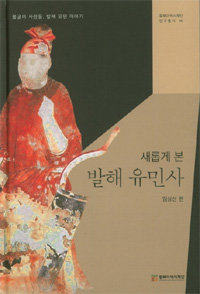Balhae diaspora upheld their spirits even 200 years after the country’s demise
Balhae diaspora upheld their spirits even 200 years after the country’s demise
Posted September. 17, 2019 07:24,
Updated September. 17, 2019 07:24

The Northeast Asian History Foundation has recently published a study book titled (translated) “A new look at the history of the Balhae diaspora.” The publication describes how people of Balhae, a.k.a. “Flourishing Land in the East,” strived for the revival of their country after it was destroyed by the invasion of the Kitan in 926.
Publisher in chief Lim Sang-sun, a senior researcher at the foundation, put the spotlight on the autonomous kingdom of Dongdan that the Kitan established after it perished Balhae. The newly-built state had faced constant resistance from the Balhae diaspora since its foundation. After Yelü Yuzhi, a cousin of the state’s founder and also high-ranking official, raised concern that the gradual spread of the Balhae diaspora would bring trouble to the kingdom, it relocated the capital to Liao in 928. Lim explained that Balhae people ran away to the Goryeo Dynasty or the Jurchen region in opposition to the decision.
The Balhae diaspora did not end their struggle against the Liao dynasty even 200 years after the demise of Balhae. Professor Na Yeong-nam at Hankuk University of Foreign Studies has studied the traces of Balhae people in the Liao Dynasty. He explained that Guyu rebelled against Liao after being inspired by the establishment of the Jin Dynasty in 1115. Next year, Go Yeong-chang proclaimed himself king of the Great Balhae, once capturing around 50 provinces in the Liaodong region.
The Balhae diaspora made their presence known in the Jin Dynasty, in particular. Jang Ho (?∼1162), historically recorded as “a person from Balhae in Liaoyang,” had served five emperors since the dynasty was founded. He was appointed to major positions such as king of Nanyang. Dr. Park Soon-woo at the Academy of Korean Studies commented that Balhae people left remarkable marks in Jin’s royal court given that a large number of them were granted nobility in the dynasty.
According to Lim, Chinese academics began to consider Balhae to be part of the Chinese history just after China promoted “Zhonghua minzu,” a key modern term that signifies “citizens.” The senior researcher added that the Balhae diaspora called themselves people from Balhae, as which others also classified them, whether they lived in the Kitan region, the Song Dynasty or the Goryeo Dynasty.
Jong-Yeob JO jjj@donga.com







